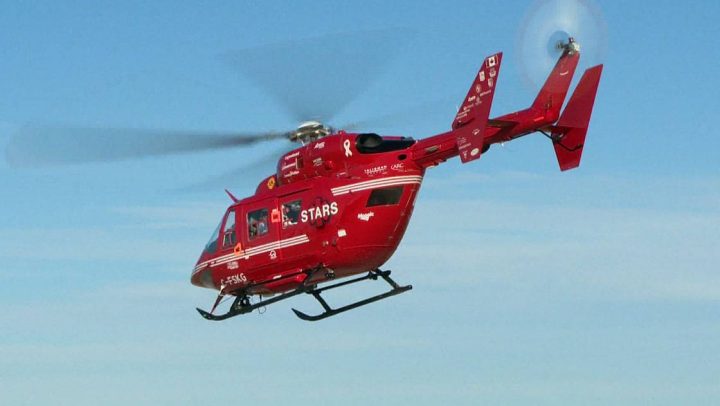WINNIPEG – Manitoba’s auditor general says the government broke its own tendering rules and didn’t ensure it was getting value for money when it signed an air ambulance contract that will cost taxpayers $159 million.

Carol Bellringer also said the province failed to establish proper monitoring of patient safety on the air ambulance fleet, which was temporarily grounded for three months in December following safety concerns.
A 10-year contract signed in 2012 with the Shock Trauma Air Rescue Service, known as STARS, was never put out for public tender and was signed despite evidence the cost-per-mission would be up to 600 per cent more than in other provinces, Bellringer said.
“Without the benefit of a tendering process, (Manitoba) Health could not demonstrate that they are achieving value for money, balancing price with economy, efficiency and effectiveness of the goods and services required,” Bellringer wrote in her annual report tabled in the legislature Wednesday.
Bellringer said Manitoba didn’t adequately explore other options, such as expanding its own fleet of 24 air ambulances called Lifeflight, before it signed the contract in 2012. The government’s own analysis showed Lifeflight could have completed around 600 missions at a cost of $3 million, she said.
“The substantial cost difference should have prompted … further analysis to determine if budgeted numbers were reasonable,” Bellringer wrote. “We found no documented analysis or evidence explaining this significant cost difference. (Manitoba) Health could not demonstrate to us that it is receiving value for money.”
The NDP promised STARS service before the 2011 election. Premier Greg Selinger said the government used the service during the spring flood and didn’t put the contract out for tender because it wanted “continuity.”

Get weekly health news
“It was determined that continuity of service was fundamentally important to serve the needs of Manitobans,” Selinger said in the legislature. “To put it out to tender would have taken 18 to 24 months to reboot a service potentially under another provider.”
Manitoba recently grounded STARS — a non-profit agency which has operated for years in Alberta and Saskatchewan — for three months after three critical instances where patients may have been deprived of oxygen.
In late November, a woman died shortly after landing in Winnipeg for medical care. Her death was later attributed to an underlying medical condition. Last May, a two-year-old boy was left brain-damaged following a flight from Brandon to Winnipeg during which his breathing tube became dislodged. In February 2013, there was a case where a patient was not provided with sufficient oxygen.
Although concerns about the quality of patient care aboard the ambulances were raised, Bellringer said Manitoba Health doesn’t have an adequate way of monitoring the “patient care that STARS provides.”
“Such a process may have detected some quality of patient care concerns earlier.”
STARS was allowed to fly again when it agreed to upgrade its equipment, increase training and work with a new oversight panel.
Bellringer recommended the province develop better ways to monitor STARS operations and ensure its insurance certificates are updated annually. The province has agreed to all her recommendations.
Opposition parties immediately pounced on the NDP, accusing the government of rushing into the contract and using STARS as an election prop. Jon Gerrard, the province’s lone Liberal MLA, said Manitoba residents could potentially have had better service all around had the contract been put out to tender.
“We got a bad deal,” he said. “There is no way of cutting it any other way. We got a bad deal because this government didn’t tender that contract.”
Tory health critic Myrna Driedger said the NDP pushed the contract through because it wanted a picture of Selinger with a helicopter to use during the 2011 election campaign. Conservative Leader Brian Pallister said the untendered contract is just the “tip of the iceberg.”
“Manitobans are paying for this wasteful spending with reduced access to health care, extended waiting lists, taxi-cab medicine — there is a price to be paid when governments waste money,” he said. “This government is wasting a lot of money with bad tendering.”







Comments